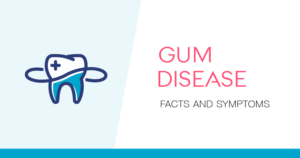Is a Private Dentist Better? [Video]
Is a private dentist better than a dentist on your insurance plan?
In this quick 5 minute video, we’ll be discussing:
- The two entities getting in between you and your healthcare provider
- How to look for the right provider
- Questions to ask a potential dentist
Knowing what to expect will help your dental visit go as smoothly as possible, with no financial or treatment surprises.
Jess Santucci: I’m going to talk about two entities getting in between you and your healthcare provider; you and your dentist in Orinda, CA.
The first is health insurance.
Health insurance has been around for a very long time. It started in 1954, and by 1970, dental insurance evolved into what we know it is today.
In 1970, the average annual payout they would give you was a thousand dollars. Fast forward to 2020, 50 years later, and the average amount they’re going to provide you with per year is a thousand dollars.
If you took those 1970’s dollars and you would adjust it for inflation, you should be getting about $10,000. I guarantee you that the premiums have been adjusted for inflation.
It’s like the frog in the boiling water analogy. If you have a pot of boiling water and toss a frog in, the frog will jump out immediately.
But:
If you put that same frog in a pot of tepid water and you slowly turn it up, the frog cooks.
They’ve already cooked medicine, and they’re well on their way to cooking dentistry.
I genuinely believe that it’s essential that you pick the right provider.
For example, when you call a dental office, it’s very intuitive that you want to have that dentist be on your plan. Well, you don’t want that dentist to be on your plan, and I’ll tell you why.
When a dentist signs up with a dental insurance, they’re signing a contract. There are many things in this contract, but essentially what it says is this, the dental insurance company says,
“Okay, look, we’re going to send you all of these patients. But we’re not going to pay you your fee. We’re going to pay you about 60% of your fee, but we’re going to send you all of these patients.”
At that point, the dentist has a decision to make. They have two decisions.
One is they can decide; well, I want to keep my quality high. So I’m going to see the same amount of people that I normally see during the day; that way, the quality stays high. And I can pat myself on the head and sleep well.
Well, when that happens, the dentist’s income goes down.
Why does that matter? Why should you even care what your dentist’s income is?
It matters because that dentist now can no longer afford to go to the best continuing education courses.
I always say it’s like a shark; dentistry is constantly evolving. If you’re not moving forward, you’re dying.
They can’t go to these courses. They don’t even know what the best techniques are out there. They can’t use the best products. They can’t use the best laboratories. They can’t buy the best cutting-edge technology, and who loses out?
You lose out because you don’t get offered the best.
You don’t always have to choose to take the best, but it would be nice to have that option.
The second decision the dentists can make is they can decide, “Okay. I want my income to be the same. So I’m going to see two to three times as many people during the day.”
I can tell you, dentistry is a very precise craft, and if I’d have to see two to three times, as many people as I’m used to seeing, quality is going to suffer mightily.
When quality suffers, things break down quicker; things have to be done over and over. So you spend more time in the office. You spend more money in the office.
Who loses? Obviously, you lose.
The second entity is a dental corporation or a dental service organization. This is a corporation.
Let me back up for just a second. As dentists, most dentists I know are very friendly, caring people, and they went into dentistry to help people.
First and foremost, we’re healthcare providers, but we’re also a small business, and we do need to make a profit.
We have employees; we have families.
We are a part of the vast, small business community in this country, which makes up about 80% of the employment in this country. We need to make a profit to stay in there. Now, when a dental corporation puts itself in between you and your dentist, they want their cut.
And that office is not being run like a healthcare practitioner.
It’s being run like a business.
That dentist only has so much money for CE, labs, products, technology; they’re not going to be allowed to do the best that they can do.
They’re not going to be allowed to use the best labs or the very best products because there’s always going to be a condition of how much they can spend so the corporation can take their cut.
Obviously, who loses out? You lose out because you don’t get the best.
And again, it’s not that you have to accept the best. It’s just nice to have the option of having the best.
When you’re calling a dental office, you want to ask them, “Are you on my plan?”
If they say no, that’s good. You don’t want them on your plan.
“Are you on any other plans? How many other plans are you on? Are you run by a dental service organization? Does a dental service organization own you?”
At least, you know, going in, if that’s the case, then you are going in eyes wide open, and you know what the score is.
Who you want to pick is a free and independent dentist. So when they look in your mouth and diagnose the disease, they are free to offer you the very best that dentistry has to offer.
Again, you can choose not to take it, but at least you have the option.
No one is telling them what they can and cannot do. No one is telling them what labs to use. No one is telling them what products to use. No one is telling them what techniques to use.
They are free to do whatever they want to do.
The relationship is between you and your dental provider and nobody else.
If you’re searching for your new dentist, Jess Santucci DDS in Orinda, serves patients from the surrounding communities of Lafayette, Moraga, Walnut Creek, Alamo, Danville, San Ramon, East Bay, San Francisco, and the SF Bay area.
- Contact us to schedule your appointment
- Questions? Call us at 925-254-4633
- Email us at team@jesssantucci.com
- Learn more about our dental services


